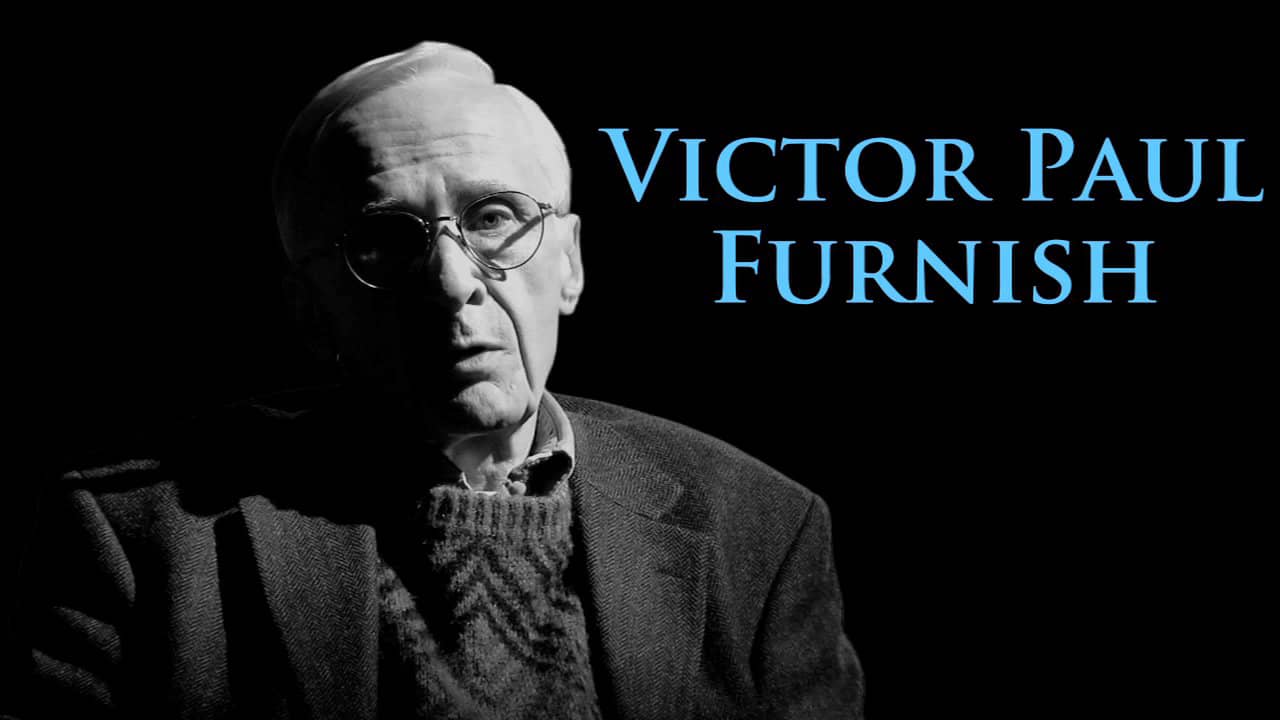 The parenetic tract of James is a loosely arranged collection of traditional admonitions designed to provide practical moral guidance. The author believes that Christians are in constant danger of being corrupted by worldly standards and values (1:27). If one is a “friend” of the world he cannot be a “friend of God” (4:4). Truly to “love God” (1:12; 2:5) means to resist the allures of one’s base worldly desires (1:13-14). The author’s other and more famous formulation of this idea is: “faith without works is dead” (2:14ff.) (Furnish, The Love Command, 175).
The parenetic tract of James is a loosely arranged collection of traditional admonitions designed to provide practical moral guidance. The author believes that Christians are in constant danger of being corrupted by worldly standards and values (1:27). If one is a “friend” of the world he cannot be a “friend of God” (4:4). Truly to “love God” (1:12; 2:5) means to resist the allures of one’s base worldly desires (1:13-14). The author’s other and more famous formulation of this idea is: “faith without works is dead” (2:14ff.) (Furnish, The Love Command, 175).
In his discussion of the love command in James 2, Furnish asks whether James identifies love as the very essence of the Christian law. Can James, as Wendland has suggested, be called an “apostle of love”? Furnish answers his question in the negative:
It would appear that the commandment of Lev. 19:18 is regarded as one among many which are to be kept by the faithful Christian. In itself it does not constitute or even summarize the essence of the “royal law.” This phrase designates “the whole law” with its various commandments (v. 10). (179-180)
Furnish argues that the terms “royal law,” “perfect law,” and “law of liberty” are synonymous terms, “used to characterize the whole Christian message of salvation” also referred to by the terms “word,” “the word of truth,” “the implanted word,” etc. (180-181). This means that James’ vision of Christian life, as Furnish understands it, “has a nomistic structure,” although he also argues that Christian obedience is not simply identified with keeping the Old Testament law: for James, only the ethical demands of the law are significant and relevant for the Christian (177). For Furnish, then, James does not refer to Leviticus 19:18 because Jesus taught it as part of the double-command: “it is explicitly commended as authoritative because it is scriptural, not because it is a command from Jesus” (177).
While this writer surely understands love of one’s neighbor to be a vital component of the Christian life, he hardly deserves to be called “an ‘apostle’ of love.” His exhortations proceed not from a declaration of God’s gift and demand of love but from his conviction that the “royal” and “perfect law of liberty” is the embodiment of wisdom. This wisdom is the essence of God’s gift, to be sought and received by faith and then exhibited in an upright life. … Paul’s ethic develops from his gospel that love is the controlling and sustaining power of salvation (the new age) already inaugurated in Christ’s death and resurrection. The ethical teaching of James stands in the wisdom tradition of Hellenistic Judaism. Obedience is not viewed as one’s acceptance and expression of Christ’s love but as performance of the new law. This is called “royal,” “perfect,” and the “law of liberty” because its commandments are understood to be exclusively ethical and to require concrete moral deeds. When it is held that “pure religion” is helping those in need (1:27), the point is not to exalt the love command as normative for all ethical action, but that religion finds its true expression in the moral life, not in the cultic (181-182).
Comment
Furnish evidently considers James as a Hellenistic work, probably later rather than early, and having its provenance in the Hellenistic rather than Palestinian world. He sees James’ understanding of the law as shaped by Hellenistic Judaism, evidenced in the terminology used: “law of liberty” is found first amongst the Stoics, then in Hellenistic Judaism; “perfect” is a term used in Judaism for the whole law (cf. Ps. 19:7); and there are precedents in Hellenistic Judaism for speaking of a “royal law” (180). This provenance diminishes the idea of James standing in a Messianic Jewish context decisively shaped by his elder brother.
His view of James as concerned with moral rather than cultic aspects of the law is certainly correct, and his understanding of James as standing in a Hellenistic wisdom tradition is intriguing; there is much in James that celebrates wisdom as God’s good gift, and which associates wisdom with moral virtue.
Nevertheless, James 2:5 does speak of those who “love God,” and also speaks of the basileia—the same word used to describe the “royal” law. Further, the association of the love command with mercy in 2:13—a text Furnish dismisses as “a separable maxim only loosely connected with the paragraphs to which it has been attached” (178), suggests that, contrary to Furnish, James views the whole section of 2:1-13 in terms of mercy—practical love expressed toward those in need. If this is the case, then the love of command of Jesus may well be seen in this text, which in turn leads us to commend Davids’ view rather than that of Furnish, that is, that James viewed the law, not simply as the whole Mosaic Law or at least the ethical aspects of it, but that law as it was mediated by Jesus, “the Old Testament ethic as explained and altered by Jesus… [i.e.] the teaching of Jesus” (Davids, 100). Then verses 10-11 are read merely as a rhetorical gesture rather than as James insisting that every aspect of the Old Testament (moral) remains binding for the Christian. Nor does this view require the loss of Furnish’s emphasis on James as standing in a wisdom tradition, but rather supports it, for in 3:17 that wisdom which is from above is “full of mercy and good fruits.”